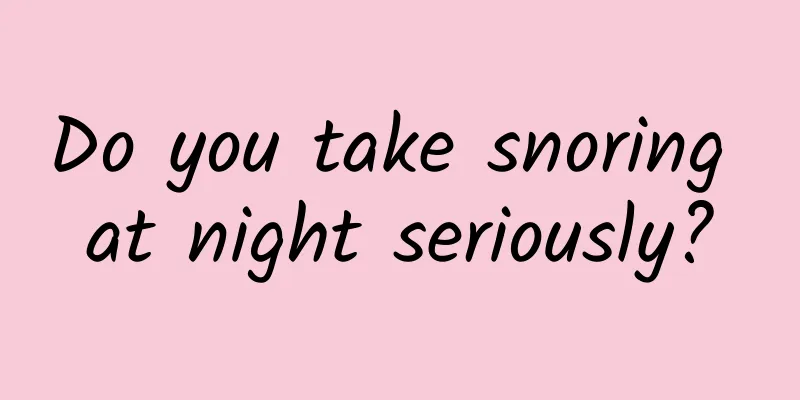Do you take snoring at night seriously?

|
Do you take snoring at night seriously? If someone in your home snores frequently, you should be careful. Let's take a case study. Case: The patient, male, 22 years old, obese, came to see a doctor for hypertension, with the highest blood pressure of 240/110 mmHg. After admission, he was given antihypertensive treatment, but the effect was not good. After the ward rounds, the attending physician was instructed to complete the sleep breathing monitoring. The results are as follows. Sleep apnea syndrome was considered, and noninvasive positive pressure ventilation was given at night, and the blood pressure remained stable. What is sleep apnea syndrome? A series of clinical syndromes caused by repeated apnea and hypopnea in patients during sleep. What are the clinical manifestations of sleep apnea syndrome? The most common symptom is repeated snoring with irregular snoring pitch. Some people are repeatedly woken up due to lack of oxygen. Some people have increased nocturia, dizziness and headache when waking up in the morning, and dry mouth and tongue. Some people have memory loss, metabolic disorders, and even sudden death. What are the dangers of sleep apnea syndrome? It can lead to high blood pressure, cardiovascular and cerebrovascular diseases, arrhythmia, diabetes, asthma, pulmonary hypertension, sexual dysfunction, cognitive dysfunction, etc. In severe cases, it can lead to sudden death. How to screen? The most commonly used method in clinical practice is polysomnography. In layman's terms, it means wearing a convenient sleep monitor before going to bed at night, which can monitor and record sleep and ventilation conditions. Who needs to be monitored? Those who have long-term and repeated snoring; Newly diagnosed hypertensive patients, especially those who are obese; Angina pectoris at night; The test found slow arrhythmia; Those with diabetes or metabolic syndrome; Elderly asthma; Increased nocturia, daytime fatigue, dizziness, and headaches; Those with chronic tonsillitis, deviated and swollen nasal septum; Those with a family history of sleep apnea and snoring; How to treat it? General treatment: quit smoking, quit drinking, lose weight, eat a balanced diet, and exercise more; use sedatives and hypnotic drugs with caution, and change sleeping position according to monitoring results. Non-surgical treatment: oxygen inhalation, non-invasive positive airway pressure ventilation, oral braces, etc. Surgical treatment: such as nasal surgery, tonsil surgery, etc. Do you know that you should pay more attention to snoring? The cover image of this article is from the copyright library and is not authorized for reproduction. |
>>: Are people who like to eat vinegar healthier?
Recommend
I can only drink porridge and soup during chemotherapy. What should I do if I am worried about malnutrition?
"Ms. Zhang was diagnosed with breast cancer ...
What's the matter with the soft flesh at the anus of a woman?
There are many diseases in life that people are e...
Can a mobile phone measure blood oxygen? Is it accurate?
Audit expert: Gu Haitong Deputy Chief Physician, ...
Which acupoints should be moxibustioned for breast hyperplasia
Breast hyperplasia has become a common problem fo...
Will blood pressure rise during menstruation?
The menstrual cycle is about 30 days. For some wo...
Why does my breast milk become thinner?
When breastfeeding women are breastfeeding, some ...
What is the normal age for women to go through menopause?
Every woman will go through menopause, especially...
Caesarean section, phlegm in throat, dare not cough
If there is phlegm in the throat after a caesarea...
What should I do if I get pregnant shortly after having my IUD removed?
Everyone must have heard of IUD insertion. IUD re...
If there is a fishy smell during menstruation, it is a disease
When the human physiological system is healthy, t...
What are the symptoms of early pregnancy?
Pregnancy is a very happy thing, but if you do no...
“Old stomach problems” are becoming younger
Mr. Zhang, 31, is a network engineer for a compan...
Pay attention to Alzheimer's disease and elderly life
1. What is Alzheimer’s disease? It refers to the ...
Women sneezing signs
Sneezing is a very common phenomenon that happens...









